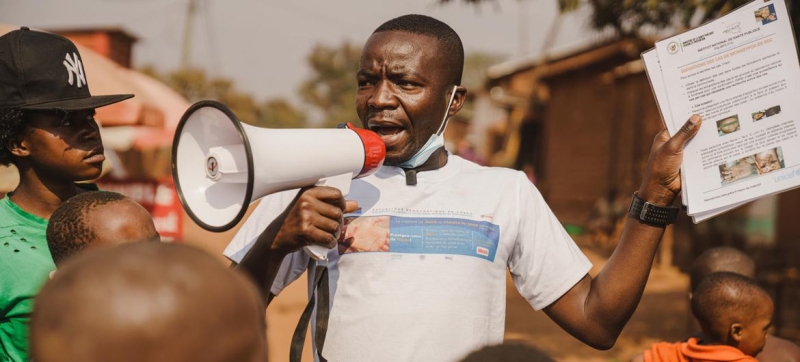
Disseminating information about monkeypox among residents of South Kivu province in DR Congo. Monkeypox outbreak threatens millions of internally displaced people in DRC Health
The World Health Organization (WHO) will need $87.4 million to implement measures to contain and eliminate the monkeypox outbreak between September this year and February 2025.
The funds will be used to implement the activities outlined in the Global Strategic Preparedness and Response Plan, which was released on Monday. The global plan is a comprehensive framework developed by WHO to guide the global response to the disease.
Read also:
UNICEF: Monkeypox outbreak affects children
Funding is needed to coordinate efforts to prevent the spread, provide technical assistance to local health authorities and other partners, operations and deliver medical supplies.
Risks for refugees
Meanwhile, the UN Refugee Agency (UNHCR) warns that without additional measures, the monkeypox outbreak will pose an extremely serious risk to refugees and displaced people in the Democratic Republic of the Congo (DRC) and other countries in Africa.
At least 42 suspected cases of the disease have been identified among refugees in the DRC’s South Kivu province. Confirmed and suspected cases have also been reported among refugees in the Republic of Congo and Rwanda.
To date, more than 18,000 suspected cases of monkeypox and 615 deaths have been reported in the DRC, according to WHO, and more than 220 cases of the new strain (clade 1b) of the virus have been reported in countries bordering the DRC.
Cases of monkeypox are suspected in conflict-affected provinces of the DRC, which are home to the majority of the country’s 7.3 million internally displaced people. In these areas, the virus threatens to exacerbate an already dire situation caused by violence, displacement, human rights violations and a lack of international assistance.
Necessary measures
Implementing many of the necessary measures remains a huge challenge, as displaced people and refugees live in overcrowded shelters with poor water, sanitation and access to services, while many in need are cut off from humanitarian aid due to the security situation.
Shelters also lack space to isolate people who show symptoms, leading some to sleep outdoors, which negatively impacts their prospects for recovery, according to UNHCR. In addition, adequate nutrition is essential for recovery, as many displaced people do not have access to it.
Rapid testing for the virus is critical to containing its spread, but in parts of eastern DRC, the security situation and lack of direct routes are hampering these programmes.
Supporting local efforts
Together with country health authorities, WHO, UNHCR and partners are expanding the availability of handwashing facilities in refugee camps and transit centres and strengthening local health system preparedness for potential outbreaks.
In countries where cases have been confirmed or suspected, outreach efforts have been launched in community languages, but there is a lack of on-site health workers enough.
UNHCR has reiterated its call for the full involvement of refugees and internally displaced people in efforts to ensure preparedness and response to the public health emergency.
